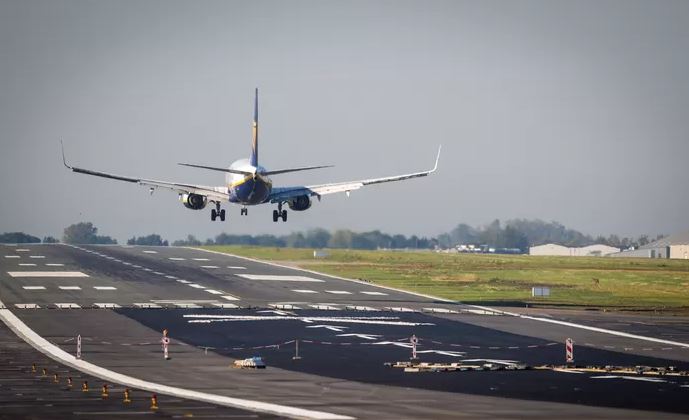Thousands of half-empty flights are being scheduled by airlines desperate to retain the much-desired take-off and landing rights as a result of the European Commission reversing the decision to reduce slots.
Fewer people are flying than expected this winter season as a result of the rapid spread of the Omicron variant. But rather than cancelling flights, airlines – including Brussels Airlines – will have to schedule thousands of "ghost flights" just to retain their landing and take-off slots.
Before the pandemic hit, airlines had to use 80% of their slots to retain these rights. The European Commission has intervened several times since the start of the pandemic and lowered the required slots to 50% until the end of March 2022 to ensure airlines wouldn't schedule unnecessary flights if they were not fully booked.
But even at this reduced number of slots, airlines are struggling to sell enough tickets to retain their take-off and landing rights.
Unnecessary flights
As a result, airlines have to schedule more flights to retain these slots. Maaike Andries, spokesperson for Brussels Airlines, explained the company's reservations about this: "From now until March we have to carry out 3,000 flights, mainly within Europe. We would rather cancel them and they should also be avoided for the sake of the environment."
Andries said that both the ecological impacts and financial benefits are taken into account before Brussels Airlines schedules a flight. This prevents putting on flights at a loss.
But to avoid making a loss on flights, more will need to be cancelled, causing Brussels Airlines to "fall beneath the minimum limit for keeping slots. That is where the problem arises because, of course, such slots are essential for an airline," she said.
Lufthansa Group, of which Brussels Airlines is a subsidiary, has said it will cancel 33,000 flights but plans to schedule 18,000 others before the end of March just to retain its slots.
Opposing climate objectives
In light of this issue and the Commission's decision to raise the required percentage to 64% from March 2022, Federal Mobility Minister Georges Gilkinet wrote to the European Commissioner for Transport, Adina Vălean on Monday, asking to keep the 50% threshold until the summer season of 2022, given that Europe is still battling the pandemic.
He called the current arrangement "completely incomprehensible from both an economic and an environmental points of view."
"Maintaining the current rules leads to unsatisfactory situations, where airlines have to fly empty and incur large and unnecessary costs. This is on top of the revenue lost by having fewer passengers." Gilkinet added that the large-scale pollution created by these flights is "contradictory to the EU's climate objectives."
Related News
- 20 airports account for 27% of greenhouse gas emissions from global air transport
- Fossil free flying? Denmark sets its sights for green aviation
- KLM pilot assists Belgian teenager in her bid to fly solo around the world
Gilkinet's spokesperson, Litte Frooninckx, told The Brussels Times that these flights are not only nonsensical from an economic and ecological standpoint but also socially, as they "favour the low-cost companies that do not offer the correct social conditions to their staff."
Brighter future
From the end of March, when the 64% slot threshold comes into force, air traffic in 2022 is expected to increase to almost 90% of pre-pandemic levels, according to European Commission forecasts.
Gilkinet specifically asked for an "appropriate threshold" to be set until the end of the summer in 2022. However, Andries explained that from April (the start of the summer airline season) onwards, more passengers are expected, making the flights more financially viable.
"From there on we actually see a positive trend, so we are quite confident that from spring onwards, the worst will be behind us," she said.

